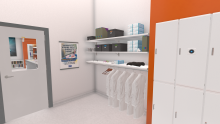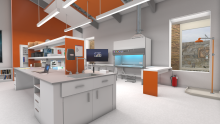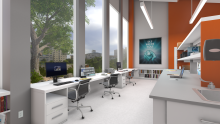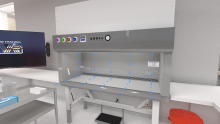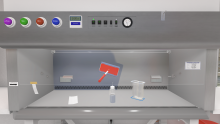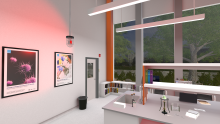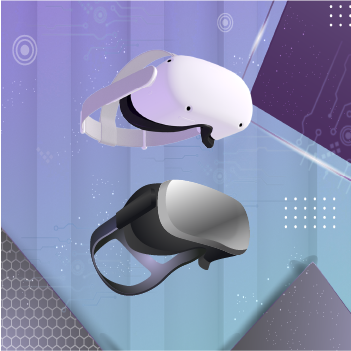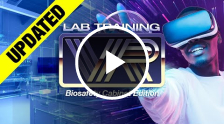
LabTrainingVR: Biological Safety Cabinet Edition
Description
This basic-level course enables learners to apply knowledge and practice setting up a biosafety cabinet (also known as a biological safety cabinet, or BSC) in a virtual laboratory. Step into a virtual laboratory and learn how to work safely in the first-ever Centers for Disease Control and Prevention’s (CDC) virtual reality (VR) laboratory training course.
This course is developed for laboratory professionals and supplements the existing CDC eLearning course Fundamentals of Working Safely in a Biological Safety Cabinet.
Objectives
At the end of this course, learners will be able to:
- Identify the major parts of a Class II BSC
- Demonstrate how to maintain positive airflow within a BSC
- Demonstrate how to prepare for work in a BSC
- Apply safe-work practices in BSC
- Demonstrate how to decontaminate and shutdown a BSC
- Conduct emergency shutdown procedures
Background
Biological Safety Cabinets (BSCs) are enclosed, ventilated workspaces designed for safely working with pathogens, contaminants, and other potentially hazardous materials. A BSC is a primary engineering control used to keep laboratory professionals safe by providing a physical barrier and an environmental barrier against biohazardous or infectious agents. The BSC helps maintain quality control of the material being worked with as it filters both the inflow and exhaust air.
CDC chose biosafety cabinets as its first VR training topic because the proper use of a BSC is a critical laboratory safety issue. The misuse of BSCs has contributed to laboratory safety incidents across the country and internationally. Also, the current BSC eLearning course has a consistently high participation rate and has received positive feedback from learners. With VR technology added to the existing eLearning course, learners can be trained on how to use a BSC properly without exposure to pathogens or risk of accidental infection or accidental release.
VR Hardware Needed
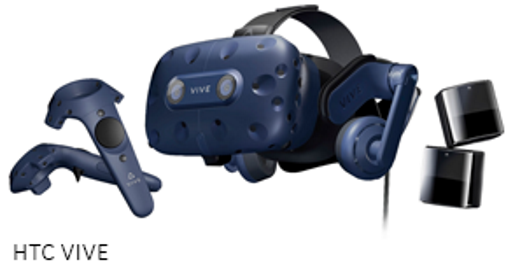
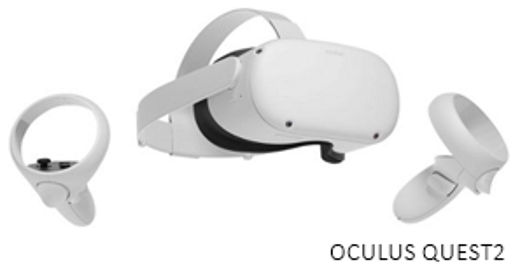
This VR course requires a play area of at least 3ft x 3ft, but ideally a larger 20ft x 20ft space to make the experience feel more accurate and real. This VR course also requires a play area with 360° tracking. Currently, this course is offered in versions designed to work with either the HTC Vive or the OculusQuest2 headset. If using the HTC Vive headset (or a tethered headset,), your computer must meet the following specifications:
MINIMUM:
OS: Windows 8.1 or later, Windows 10
Processor: CPU: Intel i5-4590, AMD FX 8350 equivalent or better
Memory: 8 GB RAM
Graphics: GTX 1060/970, R9 290 equivalent or better
DirectX: Version 11
Storage: 20 GB available space
Sound Card: N/A
Additional Notes: SSD Or Cache-Assisted HDD REQUIRED, Windows Virtual Memory MUST be enabled (16gb recommended)
RECOMMENDED:
OS: Windows 8.1 or later, Windows 10
Processor: CPU: Intel i5-6600 or better
Memory: 16 GB RAM
Graphics: GTX 1080/980TI, Radeon RX Vega 4GB or better
DirectX: Version 11
Storage: 20 GB available space
Sound Card: N/A
Additional Notes: Internal SSD HIGHLY Recommended, Windows Virtual Memory MUST be enabled (16gb recommended)


